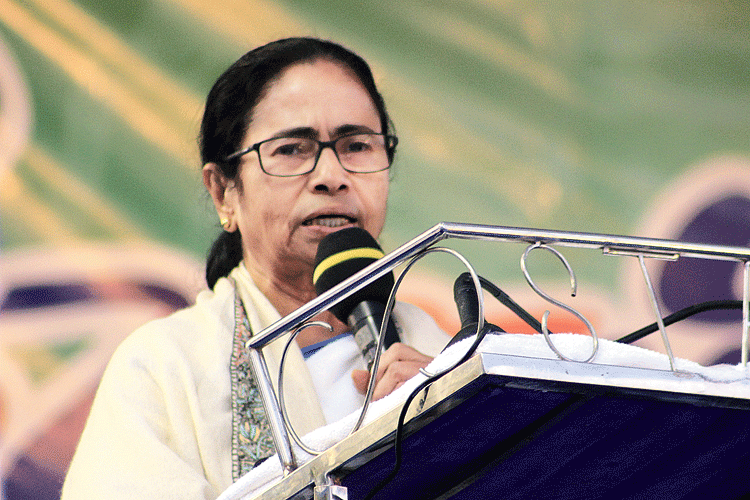The Mamata Banerjee dispensation might not join a central scheme to provide piped water to rural households as the Union government inserted a precondition that asks beneficiaries to pay 10 per cent of the cost of laying pipelines to their doorsteps.
If Bengal finally opts out of the Jal Jeevan Mission, it will be the third central scheme that will not be implemented in the state.
“The state government has a policy of not levying water tax on common people. As the central scheme has a precondition of beneficiaries sharing the cost of securing piped water, it has been decided primarily that the state would opt out of the project,” said a senior state government official.
Sources said the details of the scheme sent to the state showed that the Centre would shoulder 50 per cent of the expenditure of the project, which aims to ensure piped water supply to 1.37 crore rural households in Bengal and 18 crore rural households in the country.
The state governments need to take the burden of 40 per cent of the project’s cost and the remaining 10 per cent of the expenditure would have to be shouldered by the beneficiaries, sources said. The Trinamul government has already refused to join two central schemes — Ayushman Bharat, a health insurance plan, and PM-Kisan which aims at giving direct financial assistance to farmers.
The state government had launched two schemes on its own to replace the central ones. The alternative schemes — Swasthya Sathi and Krishak Bandhu — have put an additional burden of Rs 2,500 crore on the struggling state exchequer, the sources said.
A section of the officials said if Bengal refused to join the Jal Jeevan Mission, it would put further burden on its exchequer as the state might launch its own scheme to supply piped water to all rural households.
“About 90 per cent of the 1.37 crore rural households don’t have piped water supply. This is despite the fact that the state has about 12 major water supply projects that cover more than 40 per cent of the population. The existing projects were planned to supply water through stand-posts (roadside taps),” said a source.
A section of the officials said had the state government joined the Jal Jeevan Mission, it would have secured at least Rs 1,500 crore from the Centre to pump water directly to rural homes.
“According to a rough estimate, one crore households would have been required to pay Rs 300 crore to get the facility, which comes approximately Rs 300 per a single beneficiary. The state could have persuaded the rural people to pay for the project as it would secure safe drinking water across the state,” said an official.
A section of the officials said the Mamata government didn’t want to earn the wrath of rural people by asking them to pay money for securing piped water supply ahead of the 2021 Assembly polls. The Trinamul government has projected itself to be one with human face.
“It is clear that the dole politics is still popular in the country and the victory of Arvind Kejriwal in Delhi established the fact. Why would we take the risk of levying water tax in a different name?” asked a minister.
A senior government official said Bengal could consider joining the scheme if the Centre allowed the state to shoulder the beneficiaries’ share.
But officials aware of the project details said the Centre wanted the beneficiaries of the water scheme to share the cost in order to involve them closely with the project.











